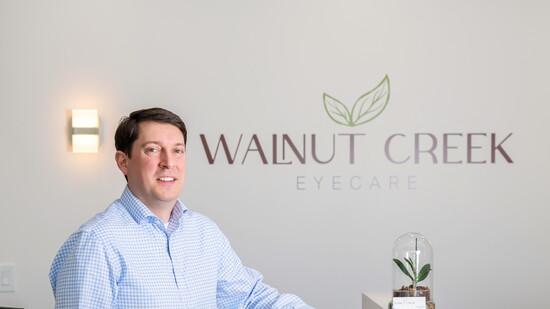We have annual exams with our primary care doctor. We visit our dentist every six months for a cleaning. But how often do we see the provider who monitors our vision?
We sat down with Dr. Zach Brown, a comprehensive optometrist at Walnut Creek Eyecare in Papillion, to gain insight into the importance of regular eye exams.
Q: What can I expect from an eye exam?
Dr. Brown: An eye exam is more than just updating prescriptions for glasses and contacts; it’s also a thorough check of your eyes and overall health. Using advanced tools like the Optomap, we track changes that can reveal early ocular signs such as glaucoma or macular degeneration. This can also reveal changes corresponding to systemic diseases like diabetes and hypertension.
Q: What lifestyle habits are detrimental to our eyes?
Dr. Brown: Smoking affects the cardiovascular system, and our eyes are very vascular. In addition to that, smoking is a major risk factor in macular degeneration formation and progression. Even second-hand smoke is bad for our eyes.
Q: What measures should I take to protect my eyes?
Dr. Brown: We can do several things to protect our vision. An important one is to wear sunglasses. UV light exposure damages our skin and is just as damaging to our eyes. Even cataracts develop quicker and sooner for those who do not wear sunglasses. Another measure we can take is to eat a good diet containing lots of fruits and vegetables and, in general, live a healthy lifestyle.
Q: What signs or symptoms should I immediately report to my eye doctor?
Dr. Brown: Call your eye doctor if you suddenly see flashes of light or a large influx of floaters. The retina is the tissue that lives in the back of your eye, and suddenly having flashes or floaters may indicate a retinal detachment or tear.
Q: How often should we have eye exams?
Dr. Brown: For children, we recommend an exam before age three, around Kindergarten, and every one to two years after that. Approximately 80 percent of a child’s learning comes through vision, and we want to help those children who are frustrated and may be struggling due to vision issues. People aged 18 to 40 should see their eye doctor every one to two years. If you are over 40, you should have eye exams annually.
